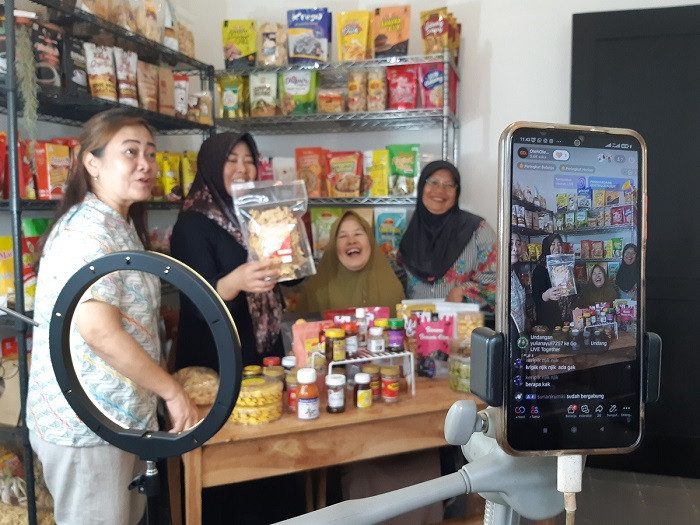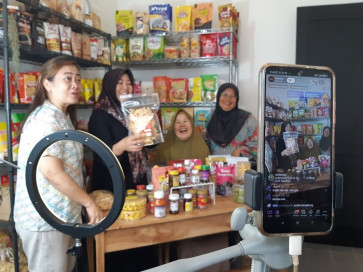Popular Reads
Top Results
Can't find what you're looking for?
View all search resultsPopular Reads
Top Results
Can't find what you're looking for?
View all search resultsLow prices on social commerce: Predatory pricing?
It is not uncommon for the shopping process to be carried out instantly because of the lure of low prices and limited stock.
Change text size
Gift Premium Articles
to Anyone
T
he term social commerce has started to gain popularity on social media. Imported goods are sold on the TikTok Shop at prices below the production costs of local products, which leads to predatory pricing and sales at a loss.
Social commerce is new, and it is here to stay. DigiVenders said that in 2020, its global value reaches US$89.4 billion and is predicted to reach $604.5 billion by 2027. In Indonesia, The DSInnovate market value reached $8.6 billion in 2022, with an estimated annual growth of 55 percent, and is expected to hit $86.7 billion by 2028.
Social commerce is a place for micro, small and medium enterprises (MSMEs) to market their products, but it can also create competitive pressure from imported products and contribute to the closing of physical shops in shopping centers like Tanah Abang in Jakarta. The development of this new form of commerce cannot be separated from the rapid use of social media in Indonesia, which has 167 million active social media users, 78 percent of Indonesia's total internet users.
Indonesian consumers use social media to search and compare products before making a purchase. The Global WebIndex survey showed that this process was carried out by 54 percent of internet users. Most use social media to buy clothes, beauty products, food and electronic accessories, according to the results of last year's Populix survey. The TikTok Shop is the platform most used by women, while the Instagram Shop is preferred by men.
The integration of social media platforms and sales of goods provides convenience in determining shopping behavior, especially if the consumer already has confidence in certain influencers. It is not uncommon for the shopping process to be carried out instantly because of the lure of low prices and limited stock. Does this lead to predatory pricing?
Social media platforms provide a forum for interaction between users and connect sellers with buyers. In this way, the platform is a market. If the platforms do not provide their own products, they act as intermediaries. Sellers are platform users, so if a seller offers a low price, it does not mean that the platform is offering a low price.
A seller’s low prices can be attributed to several things, including wholesale product sales, low quality products and products that are not original and the need to clear out old stock.



















